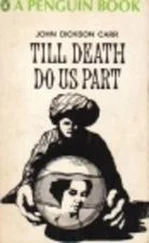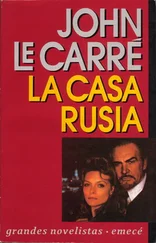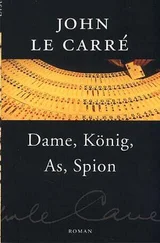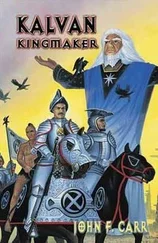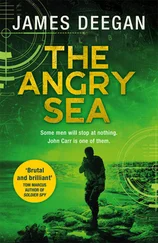John le Carré
A DELICATE TRUTH

For VJC
No winter shall abate the spring’s increase
Donne
If one tells the truth, one is sure, sooner or later, to be found out.
Oscar Wilde

1
On the second floor of a characterless hotel in the British Crown Colony of Gibraltar, a lithe, agile man in his late fifties restlessly paced his bedroom. His very British features, though pleasant and plainly honourable, indicated a choleric nature brought to the limit of its endurance. A distraught lecturer, you might have thought, observing the bookish forward lean and loping stride and the errant forelock of salt-and-pepper hair that repeatedly had to be disciplined with jerky back-handed shoves of the bony wrist. Certainly it would not have occurred to many people, even in their most fanciful dreams, that he was a middle-ranking British civil servant, hauled from his desk in one of the more prosaic departments of Her Majesty’s Foreign and Commonwealth Office to be dispatched on a top-secret mission of acute sensitivity.
His assumed first name, as he insisted on repeating to himself, sometimes half aloud, was Paul and his second – not exactly hard to remember – was Anderson. If he turned on the television set it said Welcome, Mr Paul Anderson. Why not enjoy a complimentary pre-dinner aperitif in our Lord Nelson’s Snug! The exclamation mark in place of the more appropriate question mark was a source of constant annoyance to the pedant in him. He was wearing the hotel’s bathrobe of white towelling and he had been wearing it ever since his incarceration, except when vainly trying to sleep or, once only, slinking upstairs at an unsociable hour to eat alone in a rooftop brasserie washed with the fumes of chlorine from a third-floor swimming pool across the road. Like much else in the room, the bathrobe, too short for his long legs, reeked of stale cigarette smoke and lavender air freshener.
As he paced, he determinedly acted out his feelings to himself without the restraints customary in his official life, his features one moment cramped in honest perplexity, the next glowering in the full-length mirror that was screwed to the tartan wallpaper. Here and there he spoke to himself by way of relief or exhortation. Also half aloud? What was the difference when you were banged up in an empty room with nobody to listen to you but a colour-tinted photograph of our dear young Queen on a brown horse?
On a plastic-topped table lay the remnants of a club sandwich that he had pronounced dead on arrival, and an abandoned bottle of warm Coca-Cola. Though it came hard to him, he had permitted himself no alcohol since he had taken possession of the room. The bed, which he had learned to detest as no other, was large enough for six, but he had only to stretch out on it for his back to give him hell. A radiant crimson counterpane of imitation silk lay over it, and on the counterpane an innocent-looking cellphone which he had been assured was modified to the highest state of encryption and, though he was of little faith in such matters, he could only suppose it was. Each time he passed it, his gaze fixed on it with a mixture of reproach, longing and frustration.
I regret to inform you, Paul, that you will be totally incommunicado, save for operational purposes, throughout your mission , the laborious South African voice of Elliot, his self-designated field commander, is warning him. Should an unfortunate crisis afflict your fine family during your absence they will pass their concerns to your office’s welfare department, whereupon contact with you will be made. Do I make myself clear, Paul?
You do, Elliot, little by little you do.
Reaching the overlarge picture window at the further end of the room, he scowled upward through the grimy net curtains at Gibraltar’s legendary Rock which, sallow, wrinkled and remote, scowled back at him like an angry dowager. Yet again, out of habit and impatience, he examined his alien wristwatch and compared it with the green numerals on the radio clock beside the bed. The watch was of battered steel with a black dial, a replacement for the gold Cartier presented to him on their twenty-fifth by his beloved wife on the strength of an inheritance from one of her many deceased aunts.
But hang on a minute! Paul hasn’t got a bloody wife! Paul Anderson has no wife, no daughter. Paul Anderson’s a bloody hermit!
‘Can’t have you wearing that , Paul darling, can we now?’ a motherly woman his own age is saying to him a lifetime ago in the red-brick suburban villa near Heathrow airport where she and her sisterly colleague are dressing him for the part. ‘Not with those nice initials engraved on it, can we? You’d have to say you’d nicked it off of somebody married, wouldn’t you, Paul?’
Sharing the joke, determined as ever to be a good chap by his own lights, he looks on while she writes Paul on an adhesive label and locks his gold watch away in a cash box with his wedding ring for what she calls the duration .
* * *
How in God’s name did I ever get to end up in this hellhole in the first place?
Did I jump or was I pushed? Or was it a bit of both?
Describe, please, in a few well-chosen circuits of the room, the precise circumstances of your unlikely journey from blessed monotony to solitary confinement on a British colonial rock.
* * *
‘So how’s your poor dear wife?’ asks the not-quite-superannuated ice queen of Personnel Department, now grandly rechristened Human Resources for no reason known to man, having summoned him without a word of explanation to her lofty bower on a Friday evening when all good citizens are hurrying home. The two are old adversaries. If they have anything at all in common, it is the feeling that there are so few of them left.
‘Thank you, Audrey, not poor at all, I am pleased to say,’ he replies, with the determined levity he affects for such life-threatening encounters. ‘Dear but not poor. She remains in full remission. And you? In the pink of health, I trust?’
‘So she’s leavable,’ Audrey suggests, ignoring this kindly enquiry.
‘My hat no! In what sense?’ – determinedly keeping up the jolly banter.
‘In this sense: would four super-secret days abroad in a salubrious climate, just possibly running to five, be of any interest to you?’
‘They could be of considerable possible interest, thank you, Audrey, as it happens. Our grown-up daughter is living with us at the moment, so the timing could scarcely be better, given that she happens to be a medical doctor ,’ he can’t resist adding in his pride, but Audrey remains unimpressed by his daughter’s accomplishment.
‘I don’t know what it’s about and I don’t have to,’ she says, answering a question that he hasn’t put to her. ‘There’s a dynamic young junior minister called Quinn upstairs whom you may have heard of. He’d like to see you immediately. He’s a new broom, in case word hasn’t reached you in the far wastes of Logistical Contingencies, recently acquired from Defence – hardly a recommendation but there you are.’
What on earth’s she on about? Of course such news has reached him. He reads his newspapers, doesn’t he? He watches Newsnight . Fergus Quinn, MP, Fergie to the world, is a Scottish brawler, a self-styled bête intellectuelle of the New Labour stable. On television he is vocal, belligerent and alarming. Moreover, he prides himself on being the people’s scourge of Whitehall’s bureaucracy – a commendable virtue viewed from afar, but scarcely reassuring if you happen to be a Whitehall bureaucrat.
Читать дальше



